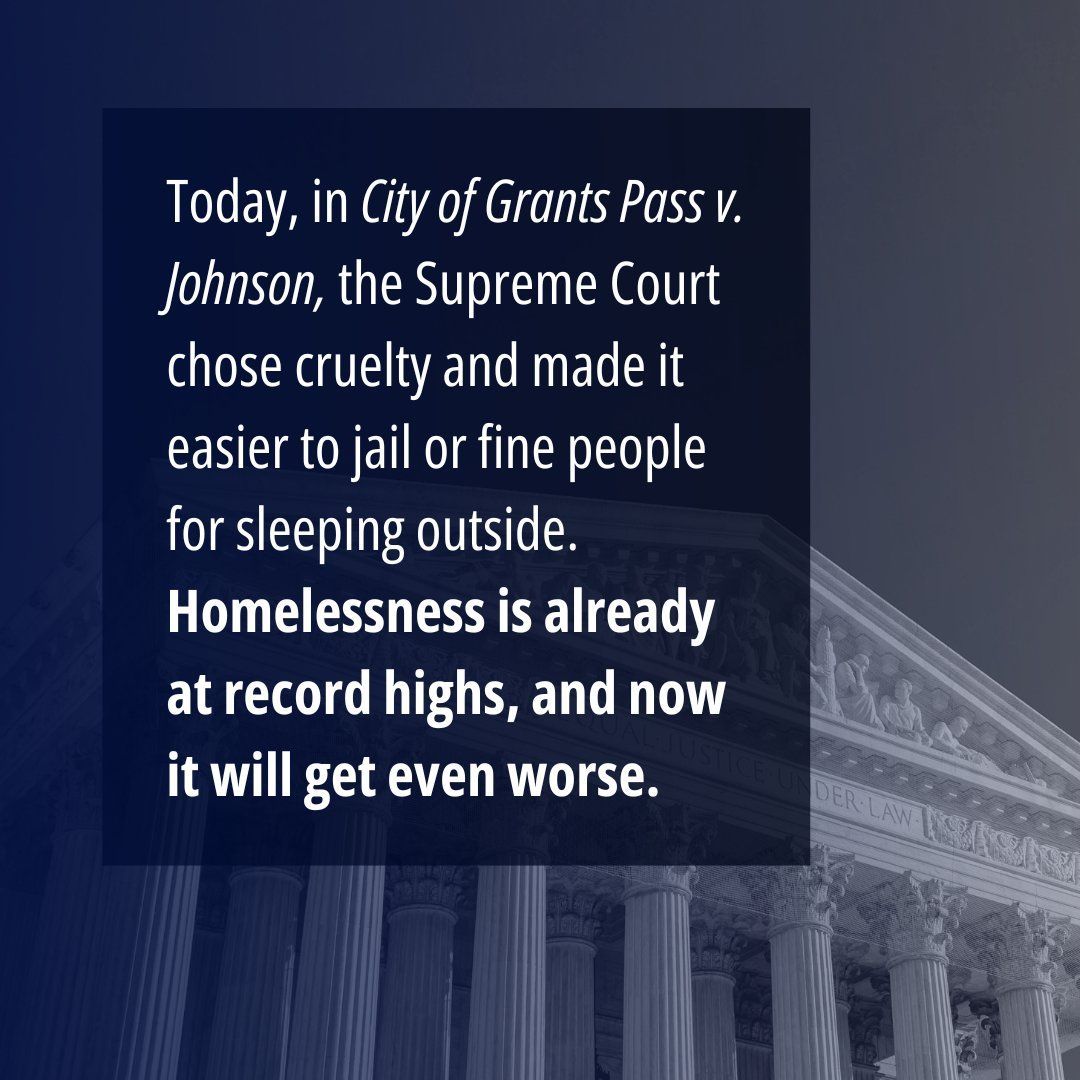SCOTUS Clears the Way to Criminalize Homelessness
Ruling comes after homelessness in the US grew 12% last year to its highest reported level

In a 6-3 decision along ideological lines, the United States Supreme Court cleared the way for cities to enforce bans on homeless people sleeping outside in public places on Friday. The ruling overturned a California-based appeals court that found such laws violated the Eighth Amendment to the Constitution and amounted to cruel and unusual punishment when shelter space is lacking.
City of Grants Pass v. Johnson is the high court’s most significant ruling on homelessness in decades and comes as a rising number of people in the U.S. are without a permanent place to live. Western cities had argued that the ruling made it harder to manage outdoor encampments in public spaces, but homeless advocates said punishing people who need a place to sleep would criminalize homelessness.
To emphasize her opposition, Justice Sonia Sotomayor read her dissent from the bench and accused the majority of focusing almost entirely on the needs of local governments and not enough on “the most vulnerable in our society." Sotomayor shared stories, including a Nashville man who had trouble securing housing because he had been frequently arrested for being homeless. His outreach worker gave him a T-shirt that read: “Please do not arrest me, my outreach worker is working on my housing.”
“Sleep is a biological necessity, not a crime. Homelessness is a reality for so many Americans.”
Criminalizing homelessness, Sotomayor said, can cause a “destabilizing cascade of harm” that includes losing personal documents or identification when encampments are cleared. It also leads to unpaid fines and incarceration that can result in losing work, benefits or housing opportunities. Sotomayor continued; “It is possible to acknowledge and balance the issues facing local governments, the humanity and dignity of homeless people, and our constitutional principles.” Punishing people for something they can’t control, like homelessness, is cruel and unusual, she said. She warned that striking down Eighth Amendment arguments against camping bans likely won’t end the fights over the ordinances in court.
More than 650,000 people are estimated to be homeless, the most since the country began using a yearly point-in-time survey in 2007. A lack of access to mental health and addiction resources can contribute to the crisis. Older adults, LGBTQ+ people and people of color are disproportionately affected by homelessness, advocates said.










